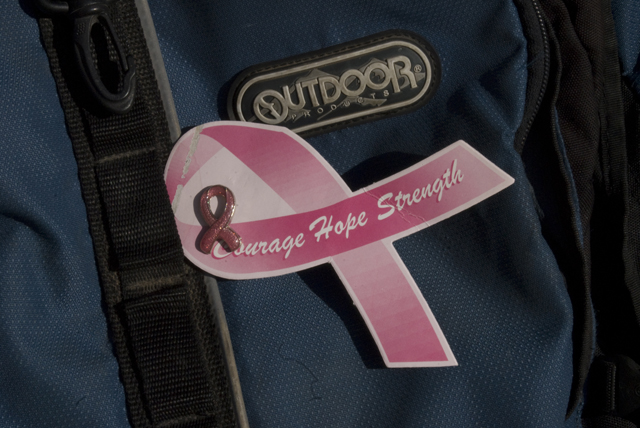Be aware during breast cancer awareness month
More than 192,000 American women will develop breast cancer this year and 40,200 will die, according to information provided by the Mammography and Women’s Imaging Center, MWIC, at Logan Regional Hospital.
The Susan G. Komen for the Cure Web site, www.komen.org, states “Except for skin cancers, breast cancer is the most common cancer in women … and it can be successfully treated.”
According to the Komen Web site, the best chance to fight breast cancer is to find it early and seek treatment, and although there is no form of prevention yet, finding it early will give a patient more treatment options, more affective treatment and a greater chance for survival.
The Komen Web site recommends women have a clinical breast exam at least every three years after the age of 20 and every year at the age of 40.
It also said women of average risk should also have a mammogram every year after the age of 40.
Information provided by the MWIC said another way to combat breast cancer and detect it early is for an individual to be familiar with how her breasts feel and what is normal for her. Eating a low-fat diet, not smoking, exercising regularly and drinking in moderation, if at all, are also contributing factors to decreasing risk. Although not all lumps found in breasts are cancerous, the whole experience of finding a lump can be scary in itself. Crystal Walker, 25, of Logan, found a lump in her breast when she was only 14 years old.
At the time, her aunt was receiving chemotherapy to treat breast cancer and had recently had both of her breasts removed.
“That was really scary as a 14 year old, knowing that could be an option,” said Walker, now married and the mother of two young girls. “The hardest part was that it took like two weeks to get the results back.”
Walker said the lump was found to be non-cancerous and was just a hyperactive cyst. She said she feels more informed than most women her age and said she does regular self-examinations and gets checked by the doctor as well.
Walker said breast cancer runs in her family and beside her aunt, her maternal grandmother has also been diagnosed with breast cancer. The MWIC said “a woman is considered at a higher risk for breast cancer if she has a mother, sister or daughter who has been diagnosed with breast cancer.
Some 5 percent of all breast cancer patients, but as many as 25 percent of women diagnosed at age 35 or younger, are believed to carry a breast cancer gene, BRCA1 or BRCA2. A carrier of this gene may have as high as an 85 percent lifetime chance of developing breast cancer.”
The Komen site said the chance of breast cancer diagnosis doubles for women with direct relatives who have had breast cancer and if they have more than one the chance increases to about three or four times.
According to www.komen.org, other risk factors are having menopause at age 55 or older, having a child after the age of 35, having one’s first period before the age 12, drinking alcohol or lack of exercise, among others. It also said breast cancer is the most common cancer among Africa-American women.
“The risk increases the older you get,” says Holly Eggli, a mammographer at the MWIC.
The MWIC says the most significant increase in diagnosed cases of breast cancer have been in women 50 and older.
In fact, 78 percent of breast cancers occur in age 50 and older compared to just 6 percent in women under 40.
It also says incidences in women age 40–49 years of age are increasing. The Komen site says 95 percent of all diagnoses of breast cancer are of women 40 and older and this is because as women get older, it is more likely abnormal changes will occur in cells and many cell changes have to occur before cancer will develop.
Women under the age of 40 are still at risk, especially if there is a family history of the disease. Eggli says breast cancer can be more aggressive with younger women as well.
Breast Cancer can affect all ages of women and October is National Breast Cancer Awareness Month, NBCAM. For additional information about NBCAM, visit www.nbcam.org. or for more information about breast cancer in general go to www.komen.org or contact a physician.
–nickolas.rust@aggiemail.usu.edu

